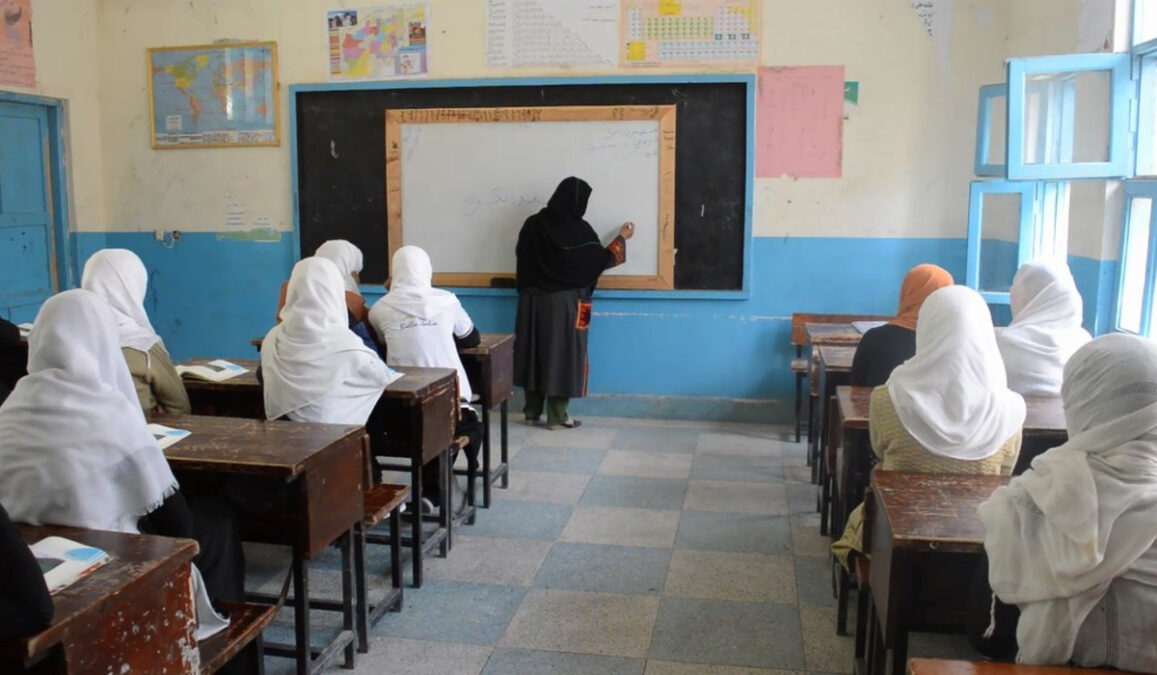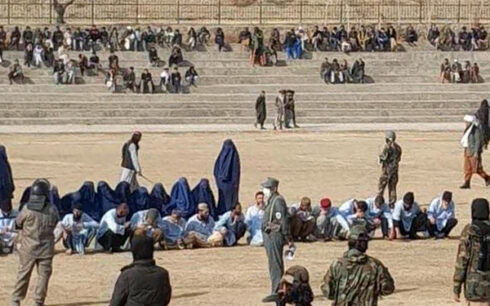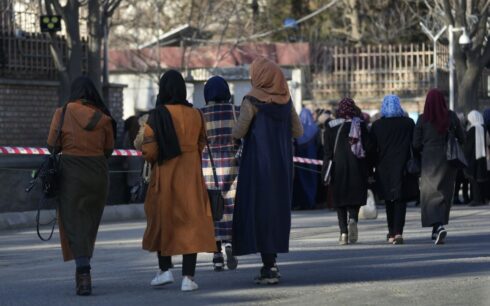KABUL, Afghanistan — Female public employees in Afghanistan are denouncing the Taliban’s decision to reduce their monthly salaries to 5,000 Afghanis ($72), calling it another instance of systemic discrimination against women.
These women, often the primary breadwinners for their families, argue that the reduced salary is insufficient to cover basic necessities.
“With a monthly salary of 5,000 afghanis, we can only buy flour and rice or cover a portion of our rent or utility bills,” said Zarmina, who has been a teacher in Badghis for seven years, supporting her eight-member family on a salary of 12,000 afghanis ($172).
“Reducing our salary to 5,000 Afghanis is unacceptable. Even with my 12,000 Afghani salary, I often had to borrow money to make ends meet for my family of eight. I hope the Taliban reconsider this decision,” Zarmina said.
Grocery vendors corroborate the employees’ concerns, noting that 5,000 Afghanis can only purchase limited supplies, such as a 40-kilogram sack of flour, a sack of rice, four liters of oil, and small quantities of beans, chickpeas, lentils, sugar, and detergent. “With the current prices, 5,000 Afghanis barely covers the basics,” said a vendor.
Female employees are unsure how they will manage the reduced salary, given the rising cost of living. “They told us our salaries would be reduced to 5,000 Afghanis. This amount is just enough for flour, rice, and sugar. I am the sole breadwinner for a family of ten. What am I supposed to do with this money?” said Zahra, a civil servant in Badghis.
Women’s rights activists argue that the Taliban are using every means possible to oppress women and girls. They warn that the salary cuts will further exacerbate the economic hardships faced by families, particularly those headed by women. “In the current economic crisis, 5,000 Afghanis isn’t even enough for basic sustenance. The higher the prices go, the more dire the situation becomes,” said activist Tarannum Saeedi.
The previous Afghan government employed approximately 134,000 women. The Taliban’s Minister of Public Health reported that 150,000 women worked in the health sector and 200,000 in education. Abdul Matin Qani, the Taliban’s Interior Ministry spokesperson, also stated that 2,000 women were employed in various departments, including the passport office and public services.
Recently, a document surfaced indicating that the Taliban leader decreed all female employees hired by the previous government, and currently paid by the Taliban, would receive a uniform salary of 5,000 Afghanis.
Taliban spokesperson Zabihullah Mujahid neither confirmed nor denied the details of this document.
The Taliban have previously barred women from working in various sectors, and this salary reduction is seen as part of a broader pattern of restrictions imposed on women.





